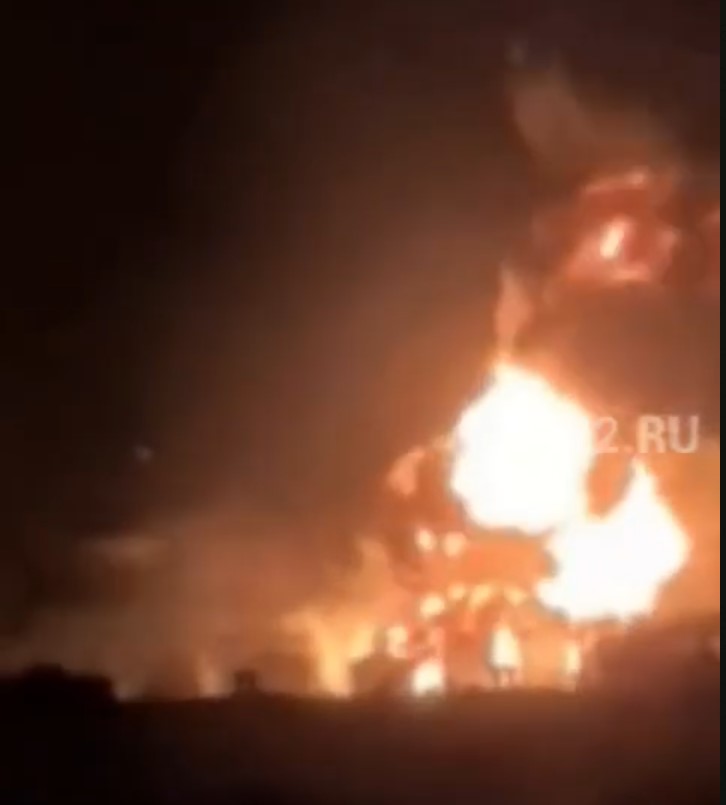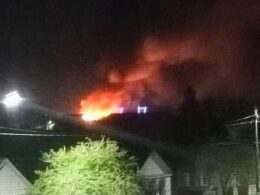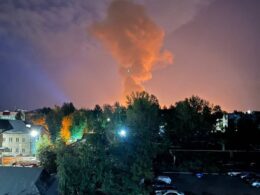Ukraine’s military has intensified drone strikes on Russian oil refineries, with the latest attack on the Ryazan facility, 100 miles south of Moscow. The blast triggered a blaze that reportedly scorched the refinery’s primary oil procession unit.
This strike is part of an ongoing effort to weaken Russia’s energy sector, which plays a crucial role in funding its war effort.
/1. Strong fire on the territory of the Russian Ryazan oil refinery. After tonight’s drone attack.
— Special Kherson Cat 🐈🇺🇦 (@bayraktar_1love) February 24, 2025
Ryazan oil refinery processed 13.1 million metric tons (262,000 barrels per day), or almost 5% of Russia's total refining throughput in 2024.
It produced 2.2 million tons of… pic.twitter.com/DMOrcHFxcM
“These strikes show Ukraine’s ability to reach deep into Russian territory,” military analyst David Axe reported for Forbes. “Russia’s air defenses are stretched thin, and Ukraine is taking full advantage.”
The Ryazan refinery, responsible for 5% of Russia’s petroleum output, follows earlier hits on the Rosneft refinery in Saratov and the Nizhny Novgorod refinery in Kstovo. Ukrainian strikes have temporarily cut Russian refining capacity by up to 10% in January, with February likely to see further disruptions. The accumulation of these attacks has forced Russian forces to divert resources to protect critical infrastructure.
Ukraine’s drone program is rapidly expanding, providing the military with enhanced operational reach. Zelenskyy recently stated that Ukraine produced 100,000 long-range drones in 2024 and will increase production in 2025.
“This year, we will make more,” he declared.
Military officials believe these drones are critical for targeting strategic assets deep inside Russia. Despite shifting US policies and geopolitical tensions, Ukraine’s military remains resolute.
“Regardless of external pressures, Ukraine is adapting and maintaining operational tempo,” Axe noted.
European leaders, meanwhile, are reconsidering defense strategies amid concerns about the US's evolving stance on the war.
As Ukrainian forces continue their campaign, Russia's economic and logistical strain is mounting. Military experts suggest that prolonged attacks on refineries could have a cascading effect, disrupting fuel supplies for both civilian and military use. With no signs of Ukraine slowing its deep-strike operations, Moscow may be forced to reevaluate its air defense and energy security strategies.
Read more:
- Ukrainian drones strike major Russian oil refinery for third time since 2025 [updated]
- Satellite image reveals damage to Russian oil refinery in Russia's Krasnodar Krai
- Ukraine strikes major Lukoil refinery in Volgograd Oblast in continued drone attack spree
/1. Strong fire on the territory of the Russian Ryazan oil refinery. After tonight’s drone attack.
— Special Kherson Cat 🐈🇺🇦 (@bayraktar_1love) February 24, 2025
Ryazan oil refinery processed 13.1 million metric tons (262,000 barrels per day), or almost 5% of Russia's total refining throughput in 2024.
It produced 2.2 million tons of… pic.twitter.com/DMOrcHFxcM





